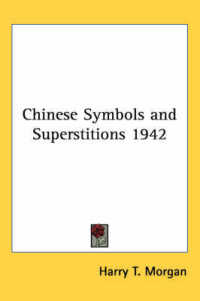Full Description
Like the rest of the American West, the mid-Columbia region has always been diverse. Its history mirrors common multiracial narratives, but with important nuances. In the late 1880s, Chinese railroad workers were segregated to East Pasco, a practice that later extended to all non-whites and continued for decades. Kennewick residents became openly proud of their status as a "lily-white" town.In Echoes of Exclusion and Resistance, the third Hanford Histories volume, four scholars--Laura Arata, Robert Bauman, Robert Franklin, and Thomas E. Marceau--draw from Hanford History Project, Atomic Heritage Foundation, and Afro-American Community Cultural and Educational Society oral histories to focus on the experiences of non-white groups whose lives were deeply impacted by the Hanford Site. Linked in ways they likely could not know, each group resisted the segregation and discrimination they encountered, and in the process, challenged the region's dominant racial norms.
The Wanapum, evicted by Hanford Nuclear Reservation construction, relate stories of their people, as well as their responses to dislocation and forced evacuation. Unable to interact with the ancient landscapes and utilize the natural resources of their traditional lands, they suffered painful, irretrievable losses. Early arrivals to the town of Pasco, the Yamauchi family built the American dream--including successful businesses and highly educated children--only to have their aspirations crushed by World War II Japanese-American internment. Thousands of African Americans migrated to the area for wartime jobs and discovered rampant segregation. Through negotiations, demonstrations, and protests, they fought the region's ingrained racial disparity. During the early years of the Cold War, Black women, mostly from East Texas, also relocated to work at Hanford. They offer a unique perspective on employment, discrimination, family, and faith.
Contents
List of IllustrationsAcknowledgments
List of Abbreviations
Introduction - The Four Deaths of Henry Williams: Constructing Racial Narratives in the Pacific Northwest
Robert Bauman
Chapter One - The Ties that Bind: Hanford's Ancient Landscape and Contemporary Native Peoples
Thomas E. Marceau
Chapter Two - "What is an American?" The Yamauchi Family, Race, and Citizenship in World War II Tri-Cities
Robert Bauman
Chapter Three - "I Chose East Pasco Because I Didn't Have No Other Choice": African American Migration, Segregation, and Civil Rights at Hanford and the Tri-Cities, 1943-1960
Robert Franklin
Chapter Four - "To Better My Condition": African American Women in the Tri-Cities, 1940-1970
Laura J. Arata
Chapter Five - "The Birmingham of Washington": Civil Rights and Black Power in the Tri-Cities
Robert Bauman and Robert Franklin
Chapter Six - Latino/as and the Continuing Significance of Race in the Tri-Cities
Robert Bauman and Robert Franklin
Oral Histories
Ellenor Moore
Wally Webster
About the Authors
Bibliography
Index







